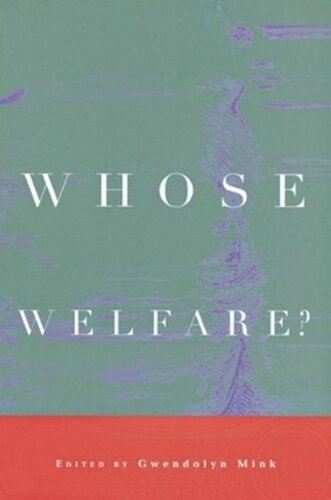

Most ebook files are in PDF format, so you can easily read them using various software such as Foxit Reader or directly on the Google Chrome browser.
Some ebook files are released by publishers in other formats such as .awz, .mobi, .epub, .fb2, etc. You may need to install specific software to read these formats on mobile/PC, such as Calibre.
Please read the tutorial at this link: https://ebookbell.com/faq
We offer FREE conversion to the popular formats you request; however, this may take some time. Therefore, right after payment, please email us, and we will try to provide the service as quickly as possible.
For some exceptional file formats or broken links (if any), please refrain from opening any disputes. Instead, email us first, and we will try to assist within a maximum of 6 hours.
EbookBell Team

4.7
86 reviewsOver the past few decades, the goal of welfare reform has been to move poor families off of welfare, not necessarily out of poverty. By that criterion, the Personal Responsibility and Work Opportunity Act of 1996 has been successful indeed: throughout the nation, millions have vanished from the welfare rolls. But what has been the cost of this "success" to the women and children who were the overwhelming majority of recipients?
Here a group of distinguished feminist scholars examines the causes and the impact of recent changes in welfare policy. Some of the authors trace the politics of welfare from the 1960s, emphasizing how attitudes toward "motherwork" and "working mothers" have evolved in the backlash against poor women's motherhood. Several other authors consider the effects of the new welfare policy on employment and wages, on the lives of noncitizen immigrants, on poor women's ability to escape domestic violence, and on their reproductive and parental rights. A third set of authors explores dependency and caregiving, along with the role of feminist thinking on these issues in the politics of welfare.
Whose Welfare? concludes with a historical analysis of activism among poor women. By illuminating that legacy, the volume challenges readers to build progressive agendas from the demands and actions of poor and working-class women.